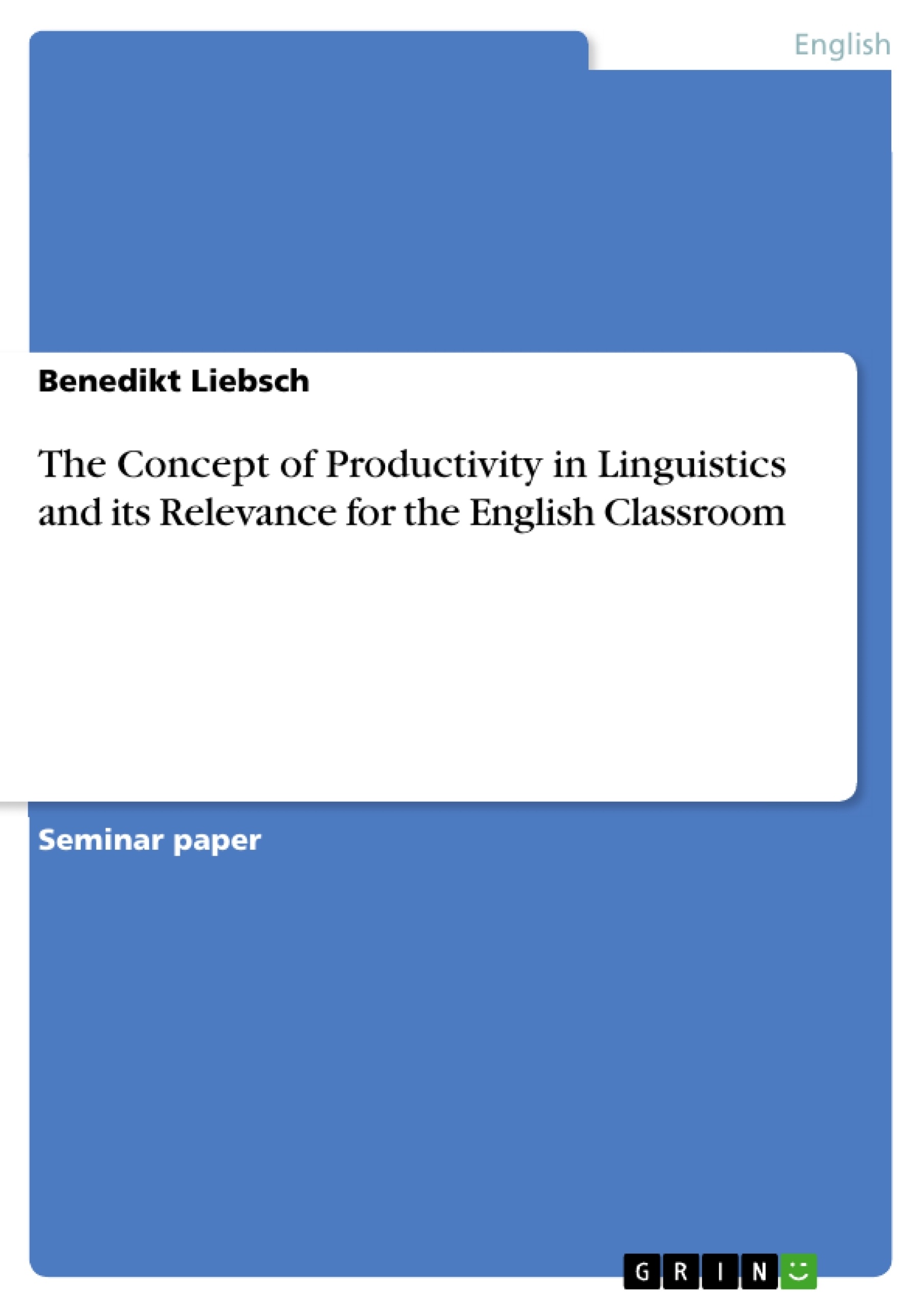This seminar paper is concerned with the linguistic concept of productivity. The term is defined and factors that limit productivity in linguistics are pointed out (Constraints on Productivity). Finally, the relevance of productivity for English lessons is shown, which should be interesting for teachers to be.
Table of Contents
- Introduction
- 1. Productivity in Linguistics
- 2. Constraints on Productivity
- 2.1 Pragmatic Restrictions
- 2.2 General Structural Restrictions
- 2.3 Word-Formation Model-Specific Restrictions
- 3. Didactic Relevance
Objectives and Key Themes
This research project investigates the didactic relevance of the linguistic phenomenon of productivity in the context of Teaching English as a Foreign Language (TEFL). It aims to define the concept of productivity and analyze the constraints that limit its application. The project then explores the implications of these findings for language teaching practices.
- Defining the concept of productivity in linguistics
- Examining the constraints on productivity, including pragmatic, structural, and word-formation-specific restrictions
- Exploring the relationship between productivity and diachronic linguistics
- Investigating the role of individual language use and memory strength in productivity
- Assessing the didactic relevance of productivity for TEFL
Chapter Summaries
- Introduction: This chapter sets the stage for the research project by outlining its objective to explore the didactic relevance of productivity in TEFL. It introduces the concept of productivity and emphasizes the need to define its boundaries and constraints.
- 1. Productivity in Linguistics: This chapter delves into the definition of productivity, analyzing different perspectives and highlighting key aspects such as the distinction between possible and actual words, the role of affixes, and the importance of both synchronic and diachronic linguistics. It also explores the relationship between productivity and memory strength, emphasizing its individual nature.
- 2. Constraints on Productivity: This chapter investigates the factors that limit productivity, categorizing them as pragmatic, general structural, and word-formation model-specific restrictions. It explores specific examples of these restrictions, such as blocking and etymological constraints, and discusses their implications for the study of productivity.
Keywords
The central keywords and topics of this research project are productivity in linguistics, constraints on productivity, pragmatic restrictions, structural restrictions, word-formation model-specific restrictions, diachronic linguistics, synchronic linguistics, and didactic relevance in TEFL.
- Quote paper
- Benedikt Liebsch (Author), 2016, The Concept of Productivity in Linguistics and its Relevance for the English Classroom, Munich, GRIN Verlag, https://www.grin.com/document/346622




